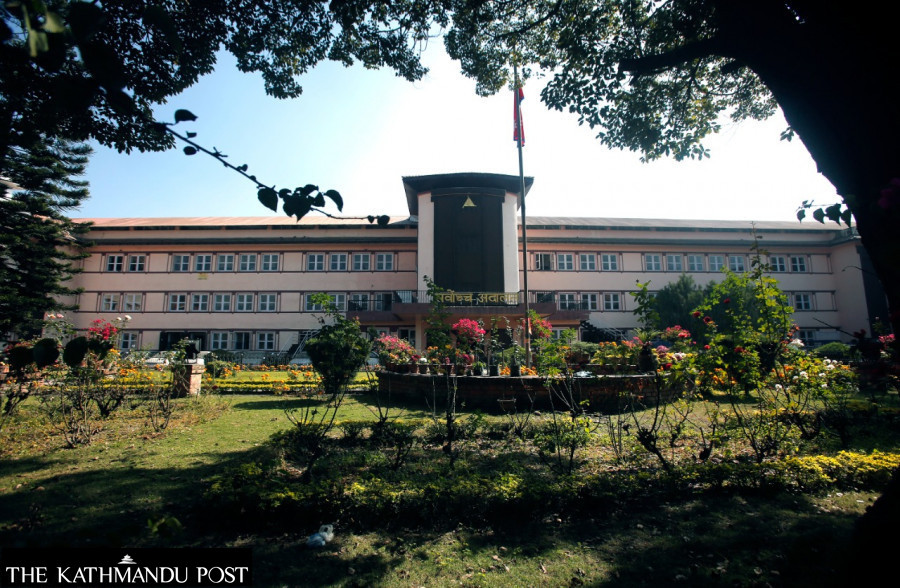National
Supreme Court annuls presidential pardon to murder convict Regal
Police arrest him from Nepalgunj following the apex court’s order.
Post Report
The Supreme Court on Thursday issued a mandamus order annulling the decision to grant a presidential pardon to Yog Raj Dhakal, aka Regal, a murder convict affiliated with the Nepali Congress.
A full bench comprising of Justices Ishwar Prasad Khatiwada, Sapana Pradhan Malla and Kumar Chudal issued the verdict to arrest him immediately while responding to a writ petition by Bharati Sherpa, then wife of Chetan Manandhar who was murdered in cold blood by Dhakal in 2015.
The bench concluded that the decision to grant pardon was constitutionally and legally incorrect.
Police arrested Regal from Nepalgunj, Banke following the court’s order. The law enforcement agency is preparing to send him to jail to serve the remaining sentence.
Earlier on October 5, the bench of Justice Manoj Kumar Sharma ordered the two state agencies to present their justifications and grounds for the amnesty.
Demanding nullification of the pardon granted to Dhakal, Sherpa had filed a writ petition at the Supreme Court.
“There is no point arresting criminals involved in heinous crimes and convicting them through courts if they are pardoned shamelessly, without completing most of their jail term. I ask the court to overturn the Cabinet’s recommendation for the pardon and the President’s move to implement it,” stated the petition by Sherpa.
On the recommendation of the Cabinet, President Ramchandra Paudel on the eve of the 8th Constitution Day on October 19 had pardoned the remaining jail terms of 670 convicts, including Dhakal.
In July 2015, Dhakal, a local Congress worker and gangster from Banke, had killed Manandhar in broad daylight using domestic weapons. He was convicted of the murder and given a 20-year jail term by the Banke district court in April 2018.
Sherpa resumed a hunger strike on Sunday that she had started in the October first week demanding a rollback of the decision while also fighting a legal battle against the pardon.
Dhakal had served just eight years of jail term when his remaining 12 years were pardoned. The government's decision to pardon his remaining term drew widespread criticism. On Constitution Day, video clips on social media showed Dhakal’s supporters giving him a grand welcome at the prison gate with a large convoy of cars.
While he granted pardon to Dhakal and 669 other convicts, President Paudel had returned 34 other names to the home ministry seeking the criteria from the government for recommending the pardons.
The Office of the President asked the Ministry of Home Affairs to present the grounds for pardoning the convicts. The government had presented two lists for pardon. One included the 670 prisoners who had completed 50 percent of their jail terms and had demonstrated good behaviour as prisoners. The list forwarded by the Cabinet was approved by the President.
The decision to commute the jail terms of 34 other prisoners was forwarded by the home ministry as per clause 159 of the National Criminal Procedure (Code) Act 2017, but was eventually rejected by the President.
A person who is sentenced by a court to jail for an offence may make a petition to the President through the Ministry of Home Affairs, for pardon, suspension, alteration or reduction of that sentence. In the process per the clause, the petitioner attaches a copy of the court's judgement, based on which he or she was sentenced.
As the home ministry’s decision was not backed by documents, Paudel refused to grant pardons, but gave his nod to the list of 670 forwarded by the Cabinet.




 9.7°C Kathmandu
9.7°C Kathmandu













